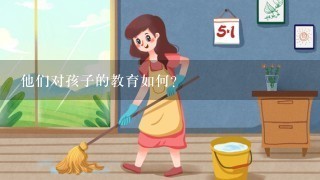他们对孩子的教育如何?

Answer:
Early Childhood Education
- Play-based learning: Children learn through exploration, discovery, and play.
- Developmentally appropriate activities: Activities are tailored to the child's age and abilities.
- Social-emotional learning: Children develop social skills, empathy, and self-regulation through interactions with peers and teachers.
- Language development: Children are exposed to rich language through conversations, songs, and stories.
- Motor skills development: Activities encourage physical development, coordination, and fine motor skills.
Primary Education
- Reading and writing: Children learn to read, write, and use basic math concepts.
- Critical thinking and problem-solving: Children develop critical thinking skills through inquiry-based learning and problem-solving activities.
- Social studies and science: Children explore the world around them through hands-on activities and field trips.
- Values and character development: Children learn about values such as kindness, respect, and responsibility through character education programs.
Secondary Education
- Academic subjects: Students take courses in English, math, science, and social studies.
- College and career readiness: Students prepare for higher education or the workforce through college preparatory courses and career counseling.
- Independent learning: Students develop independent learning skills and research abilities.
Additional Considerations
- Parental involvement: Strong parental involvement is essential for children's success.
- Early intervention: Children who need additional support can receive early intervention programs.
- Diversity and inclusion: Schools strive to create a welcoming and inclusive environment for all children.
Overall, children's education is a lifelong process that aims to develop their cognitive, social, emotional, and physical skills. By providing a supportive and stimulating environment, educators empower children to reach their full potential.






































































